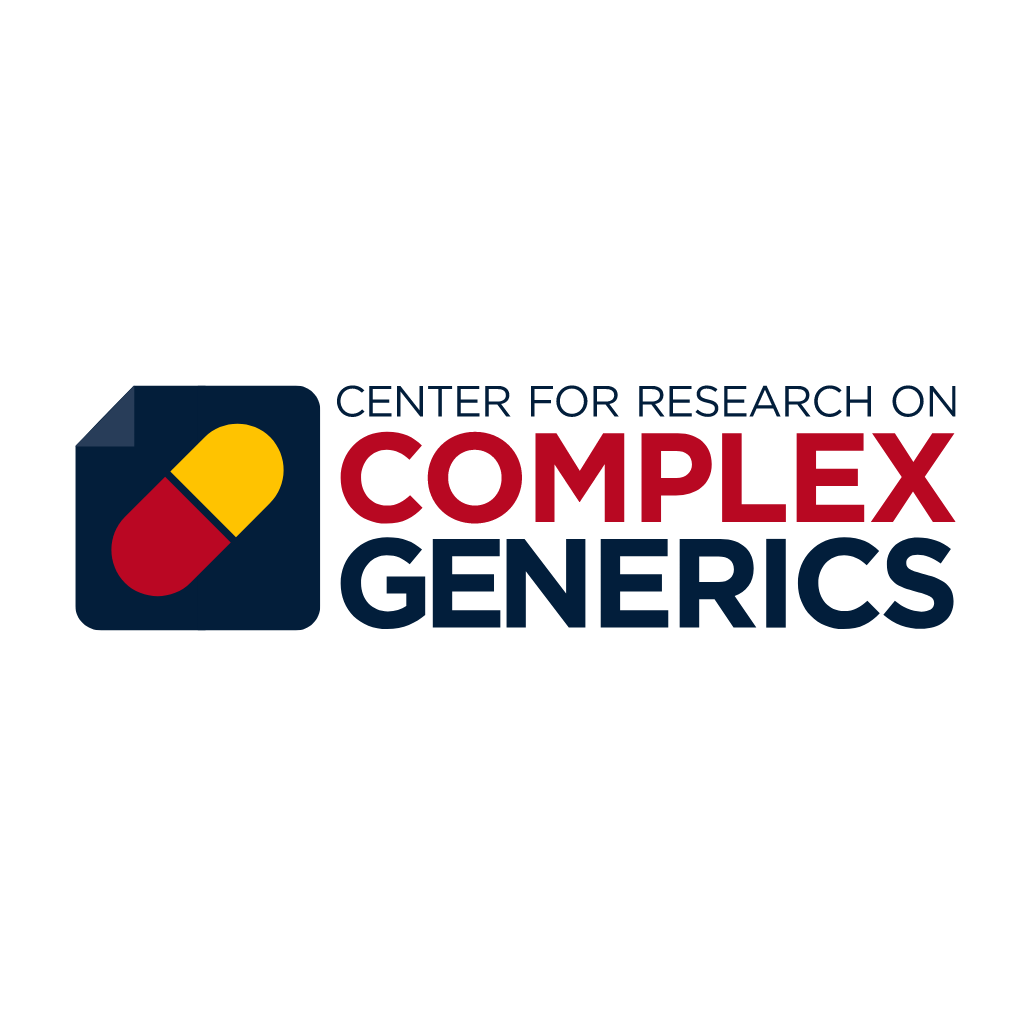In 2020, the University of Maryland School of Pharmacy and the University of Michigan College of Pharmacy received a U.S. Food and Drug Administration (FDA) U18 grant to form the Center for Research on Complex Generics (CRCG).
The FDA’s Office of Generic Drugs (OGD) ensures, through a scientific and regulatory process, that Americans receive safe, effective, and high-quality generic drugs. FDA-approved generic drugs account for about 90 percent of prescriptions filled in the United States.
OGD implements its generic drug research program under the Generic Drug User Fee Amendments (GDUFA), which supports the development of new tools for the FDA to evaluate generic drug equivalence and for industry to efficiently develop new generic products. In the reauthorization of GDUFA in 2017 (GDUFA II), the FDA made a commitment to assist industry in the submission of abbreviated new drug applications (ANDA) for complex drug products by making improvements in the process, such as developing product-specific guidances and conducting pre-ANDA meetings for complex products.
Complex products generally consist of: (1) products with complex active ingredients, formulations, routes of delivery, or dosage forms; (2) complex drug-device combination products; and (3) other products for which complexity or uncertainty concerning the approval pathway or possible alternative approach would benefit from early scientific engagement.
Why CRCG is Needed
Generic drugs account for about 90 percent of prescriptions filled in the United States. The “pre-competitive space” for generic drugs largely lies in the scientific domain of drug formulation and pharmacokinetics. Drug formulation and pharmacokinetics is a key scientific domain in the pharmaceutical industry, although is not robustly investigated or funded at American universities.
Innovations in drug formulation and pharmacokinetics often occur in the pharmaceutical industry. While drug labeling requires certain information to be described, all key drug formulation and pharmacokinetics details do not need to be described. Prescribers typically do not need to know drug formulation and pharmacokinetics details. Hence, some drug formulation and pharmacokinetic information about brand products is Confidential Commercial Information (CCI).
Some drug products are more complicated than others and denoted to be complex products. Examples are products with complex active ingredients, complex formulations, complex routes of delivery, and complex drug-device combination products. The pre-competitive space for potential complex generic products is often poorly developed, at least in terms of pre-existing knowledge in the public domain. With, at times, a dearth of pre-existing knowledge about complex drug formulation and pharmacokinetics, the development and assessment of potential generic drugs is challenging.
CRCG aims to fill this gap by contributing to the pre-competitive space for potential complex drugs.
CRCG Mission and Goals
The mission of CRCG is to increase access to safe and effective generic drugs through enhanced infrastructure/communication, education, and research collaboration across industry, academia and the FDA. We are dedicated to advancing programs that stimulate scientific dialogue, disseminate current insights, and generate new knowledge about complex generics in support of the FDA’s mission to promote and protect the public health.
CRCG will accomplish this through:
- Establishing core program infrastructure and enhancing communications between stakeholders
- Providing education and training through workshops, webinars, hands-on demonstrations, and on-site visits
- Conducting collaborative research and enabling pilot research projects and technological development
